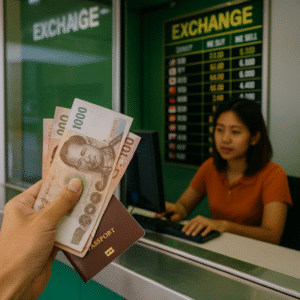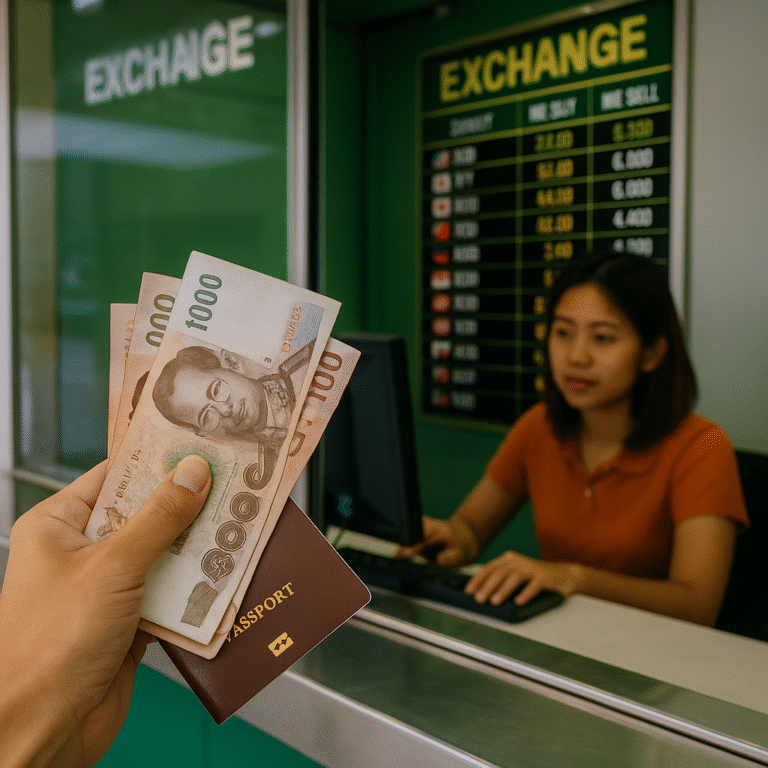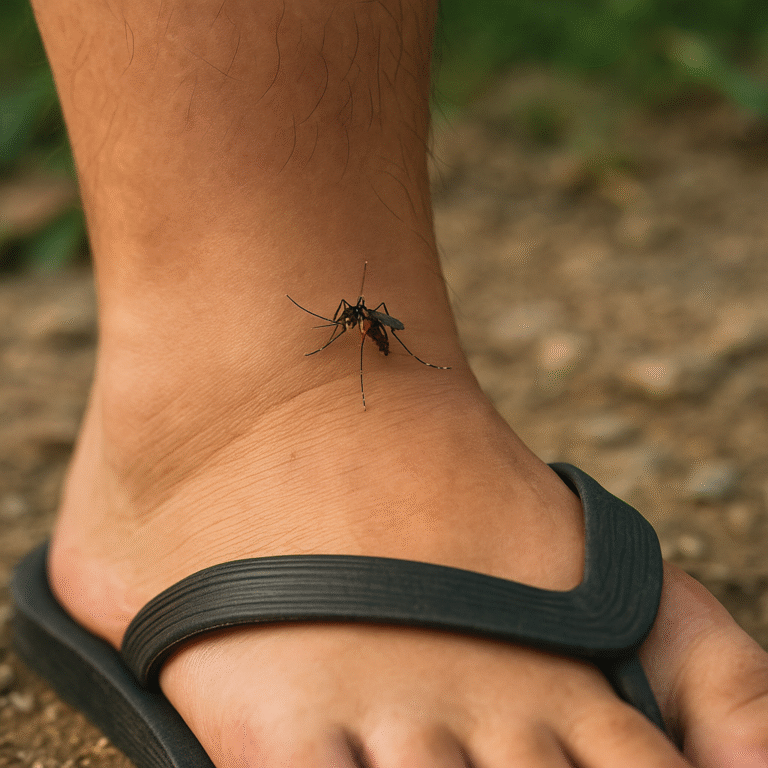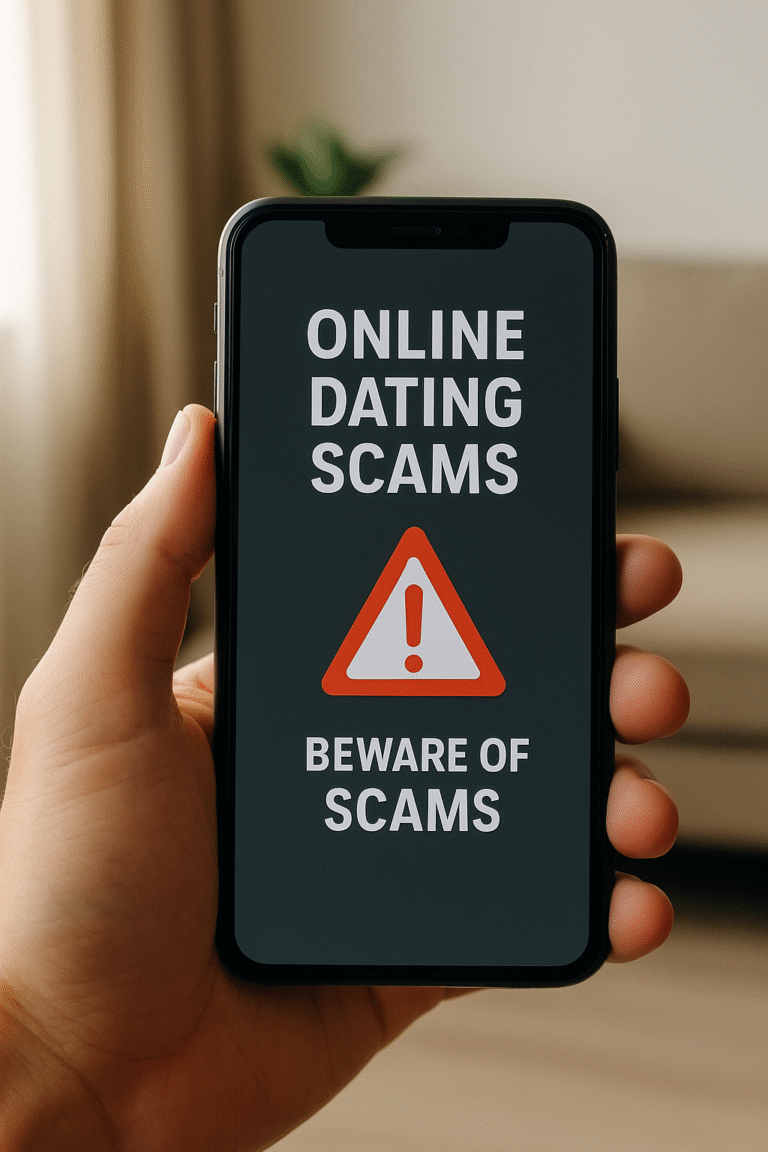
What’s the Best Way to Exchange Money in Thailand?
If you’re visiting Thailand, you’ll likely need to convert your home currency into Thai Baht (THB). While it might seem simple, not all exchange methods offer good value. Knowing the best way to exchange money in Thailand can save you from unnecessary fees and poor rates — and make your trip smoother, especially if you’re staying for more than a week.
Many first-time visitors make the mistake of exchanging all their money at the airport or sticking only to their home bank cards. In reality, Thailand offers several smarter, safer, and more cost-effective options for managing your travel funds.
1. Use Currency Exchange Booths (Not Airports)
The best exchange rates are usually found at local currency exchange shops, especially in major cities like Bangkok, Chiang Mai, or Phuket. Well-known providers like SuperRich, Vasu Exchange, and Value Plus are popular among expats and tourists for offering significantly better rates than traditional banks, airport counters, or hotel reception desks.
If you land in Bangkok, avoid the temptation to exchange all your cash at the airport. Instead, convert just enough for your taxi and basic expenses (1,000–2,000 THB), then exchange the rest in town. You’ll often find a 3–5% better rate downtown.
- Compare rates between nearby booths — even next-door vendors can differ.
- Bring clean, untorn notes — worn or damaged bills may be refused or devalued.
- Keep your receipt — it’s required if you plan to exchange THB back to your home currency later.
2. Withdraw Cash at Thai ATMs (With a Fee)
Thai ATMs are widely available across the country — from city centers to rural areas. However, there’s almost always a 220 THB fee (about $6 USD) charged per withdrawal by the Thai bank. Your home bank might also impose international fees or use poor exchange rates.
That said, ATMs are still a convenient option — especially if you travel light and prefer not to carry large amounts of cash. Some international debit cards like Revolut, Charles Schwab, or Wise offer fee reimbursements or low exchange margins, making ATM use more practical.
- Use machines from large Thai banks like Bangkok Bank, SCB, or Krungsri.
- Withdraw the maximum allowed per transaction to reduce per-fee impact.
- Always choose “Charge in THB” instead of your home currency — this avoids Dynamic Currency Conversion.
3. Use a Multi-Currency Travel Card
Prepaid travel cards like Wise, Revolut, YouTrip, or Instarem let you hold and exchange multiple currencies — often at mid-market rates without hidden markup. You can preload your card, convert money when the exchange rate is favorable, and then use it for online or in-store purchases in Thailand.
This is a great option for digital nomads, long-term travelers, or those who want control over their spending without the risk of carrying cash.
- Instant app top-ups and currency conversion
- Some cards offer virtual cards for added security
- Use online for Grab rides, hotel bookings, or e-commerce
4. Avoid Dynamic Currency Conversion (DCC)
This is a common mistake travelers make: when paying by card in Thailand, you might be asked, “Would you like to pay in your home currency?” Always say no.
This practice, known as Dynamic Currency Conversion (DCC), gives the vendor control over the exchange rate — and it’s usually unfavorable. Instead, select Thai Baht (THB) for a better rate handled by your card provider.
It applies to ATM withdrawals too — always choose the local currency when prompted.
5. Should You Exchange Money Before Arriving?
Some travelers prefer to convert currency before flying to Thailand for peace of mind. While this isn’t necessarily wrong, keep in mind that exchange rates abroad (especially in airports or banks in your home country) are usually worse than what you’ll find locally in Thailand.
- Exchange a small amount: Bring enough THB to cover your first day — transport, food, and emergencies (about 1,000–2,000 THB).
- Don’t exchange everything: Wait until you’re in Thailand to convert the majority of your funds at better rates.
6. Can You Use Credit Cards in Thailand?
Yes, but not everywhere. Major hotels, restaurants, malls, and some tour operators accept credit cards. However, street vendors, markets, taxis, and small guesthouses may be cash only.
Visa and Mastercard are widely accepted, but American Express is less common. Also, many businesses add a 3% fee when paying by card, so always ask first. It’s a good idea to carry some small notes for daily use.
Final Thoughts
The best way to exchange money in Thailand depends on your travel style and how long you’ll be staying. If you’re here for a short trip and want the best rates, go with trusted currency exchange booths in the city. For convenience, ATMs or multi-currency travel cards work well — especially if your home bank supports fee-free withdrawals.
By avoiding airport exchanges, skipping DCC offers, and using trusted methods, you can make the most of your Baht and avoid unnecessary fees. Whether you’re a backpacker, a digital nomad, or on a luxury holiday, these strategies help you stay smart with your travel money.
FAQ: Money Exchange in Thailand
What currency should I bring to Thailand?
USD, EUR, GBP, AUD, and SGD are commonly accepted and get the best rates. Avoid bringing obscure currencies or coins.
Is it safe to exchange money at booths?
Yes, as long as you use reputable providers. Look for licensed booths with clear signage, consistent rates, and paper receipts.
Can I exchange leftover Baht back into my home currency?
Yes, but rates will be slightly worse. Keep your original receipt for better re-exchange options at the same provider.
Can I use traveler’s checks?
They’re outdated and hard to cash. Stick to cash, ATM withdrawals, or digital cards.










